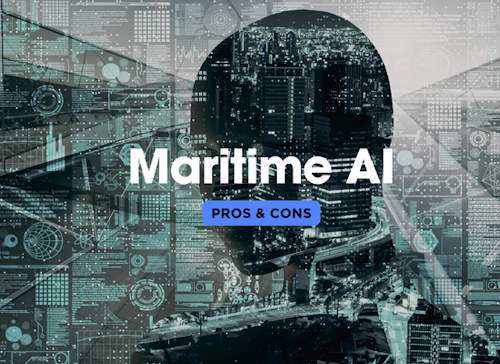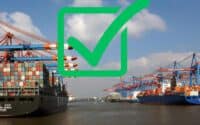Maritime AI Based Solutions: The Pros and Cons

The maritime industry is undergoing a technological revolution with the integration of artificial intelligence (AI) solutions. From autonomous operations to predictive maintenance and optimized navigation, AI could transform how maritime operations are conducted. These advancements promise significant benefits, including increased efficiency, safety, and cost savings. However, like any technology, AI in maritime applications comes with its own set of challenges and potential drawbacks. Today, we delve into the pros and cons of maritime AI solutions, providing a balanced view of how this technology is reshaping the industry.
| ShipUniverse: Pros and Cons of Maritime AI Solutions | |
|---|---|
| Pros | Cons |
|
|
Artificial intelligence (AI) is rapidly transforming various industries, and the maritime sector is no exception. AI solutions in maritime operations are designed to enhance efficiency, safety, and sustainability. From autonomous vessels to predictive maintenance, AI technologies are revolutionizing how maritime activities are conducted.
Key Areas of AI Application in Maritime
1. Autonomous Ships:
- Unmanned vessels capable of navigating and performing tasks without human intervention.
- Reduced human error and operational costs.
2. Predictive Maintenance:
- AI-driven systems that analyze data to predict equipment failures.
- Proactive maintenance reduces downtime and repair costs.
3. Optimized Navigation:
- AI algorithms optimize shipping routes based on weather, sea conditions, and traffic.
- Improved fuel efficiency and reduced emissions.
4. Cargo and Logistics Management:
- AI optimizes cargo loading and unloading processes.
- Enhanced supply chain efficiency and reduced port congestion.
5. Safety and Security:
- AI monitors and detects potential hazards in real-time.
- Enhanced security against piracy and other threats.
Benefits of AI in Maritime Operations
Efficiency:
- AI optimizes various processes, reducing operational costs and improving turnaround times.
Safety:
- AI systems enhance safety by monitoring and predicting potential hazards, reducing the risk of accidents.
Sustainability:
- AI-driven optimizations lead to reduced fuel consumption and emissions, promoting environmentally friendly practices.
Challenges of Implementing AI in Maritime
Cost:
- High initial investment in AI technology and infrastructure can be a barrier for many operators.
Technical Expertise:
- Implementing and maintaining AI systems requires specialized knowledge, which may not be readily available.
Cybersecurity:
- AI systems are vulnerable to cyber-attacks, necessitating robust security measures.
Regulation:
- Evolving regulatory frameworks can create uncertainty in AI adoption.
As the maritime industry continues to embrace the advancements brought by AI, it is crucial to strike a balance between technological innovation and the preservation of jobs. While AI solutions offer numerous benefits, such as increased efficiency, enhanced safety, and reduced environmental impact, it is important to recognize the potential impact on the workforce. By integrating AI responsibly and ensuring that workers are retrained and upskilled to adapt to new roles, the industry can harness the power of AI while maintaining valuable human expertise. Ultimately, the future of maritime operations lies in a harmonious blend of human intelligence and artificial intelligence, working together to drive progress and sustainability.

Do you have a Maritime Product or Service that may be of interest to Shipowners? Tell us about it here!
Do you have feedback or insights? Please reach out to editor @ shipuniverse.com




